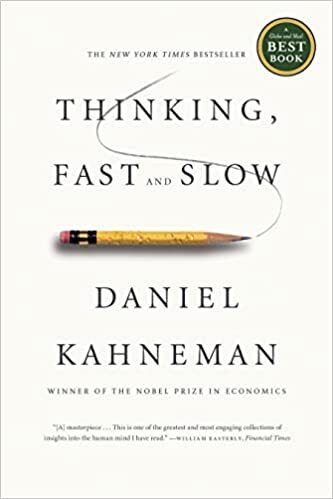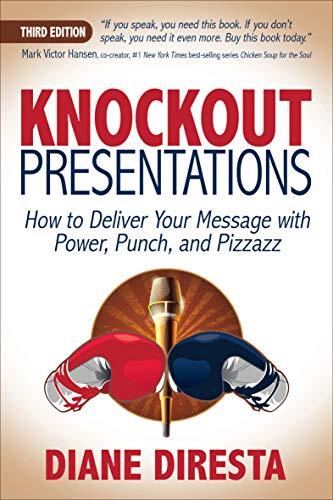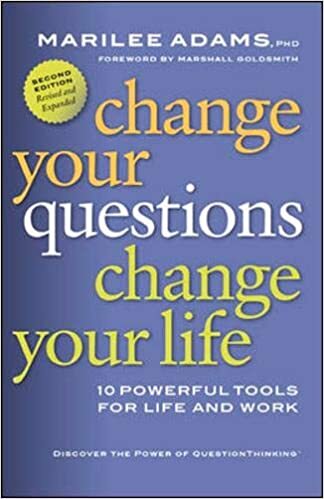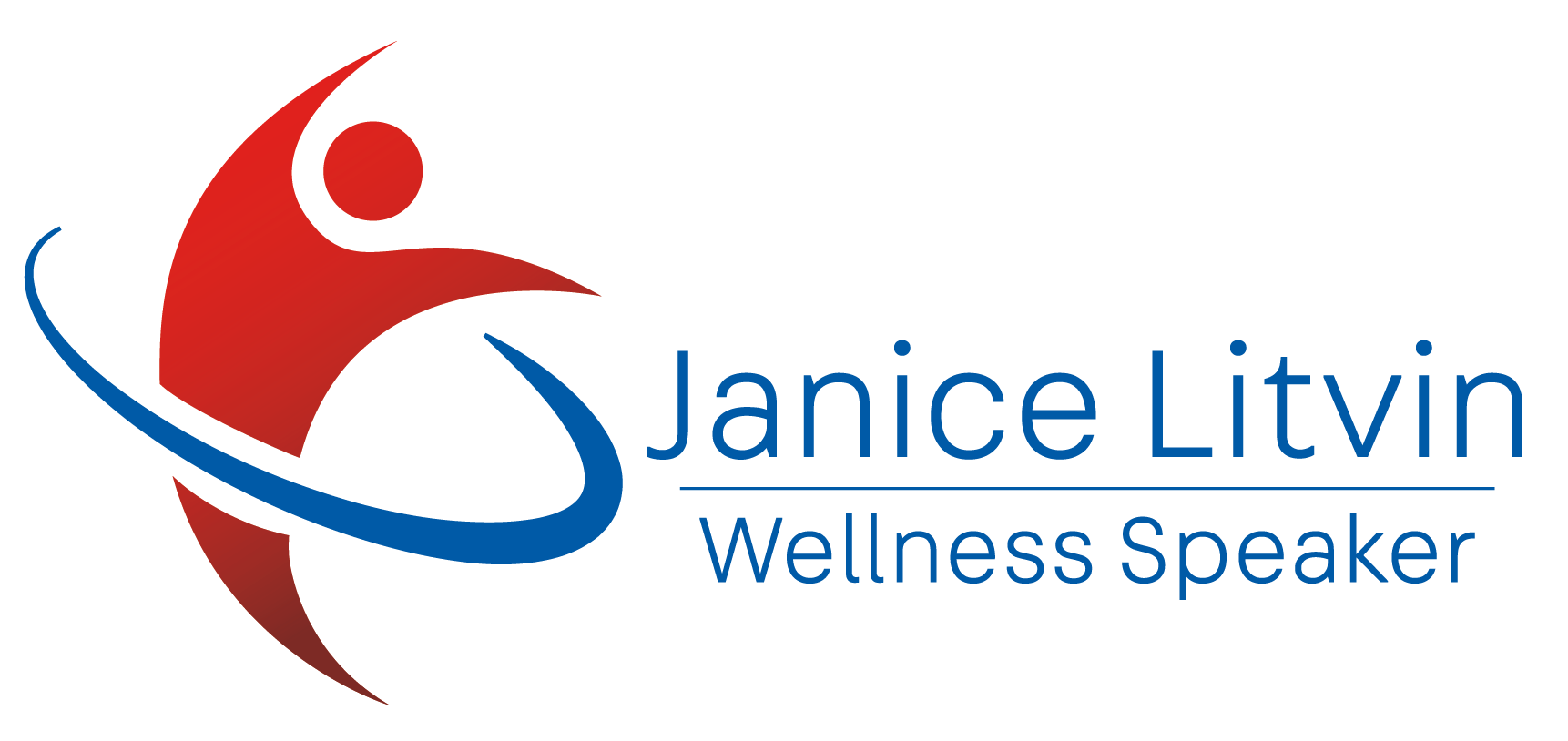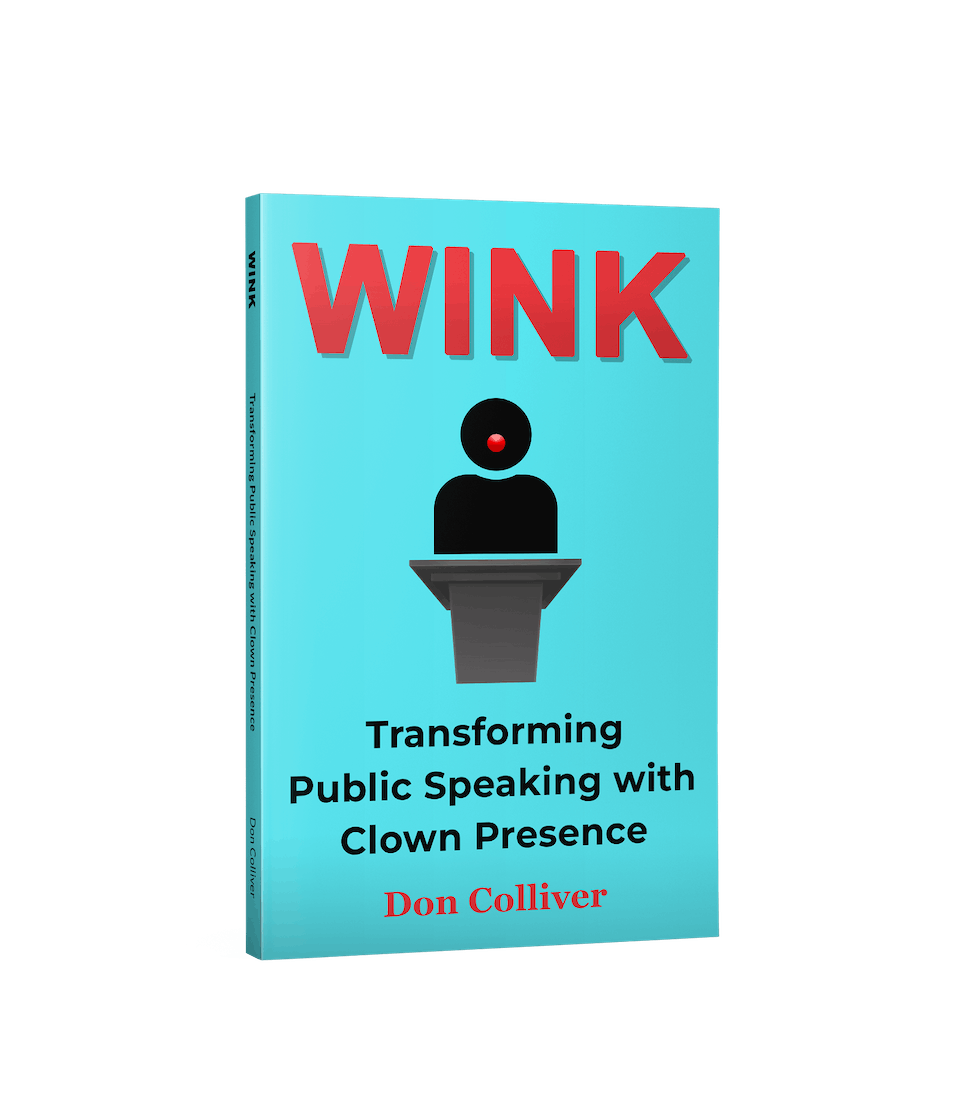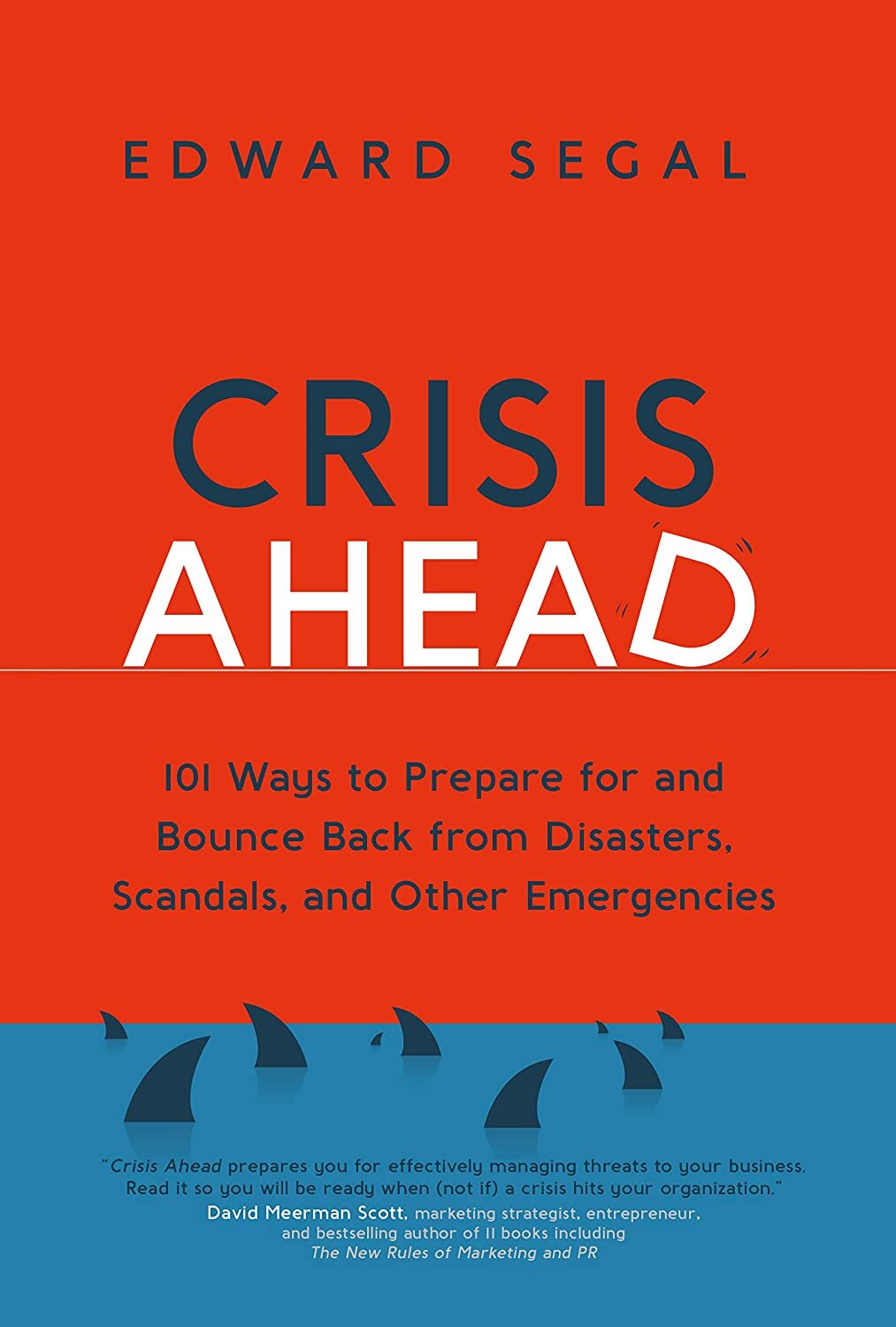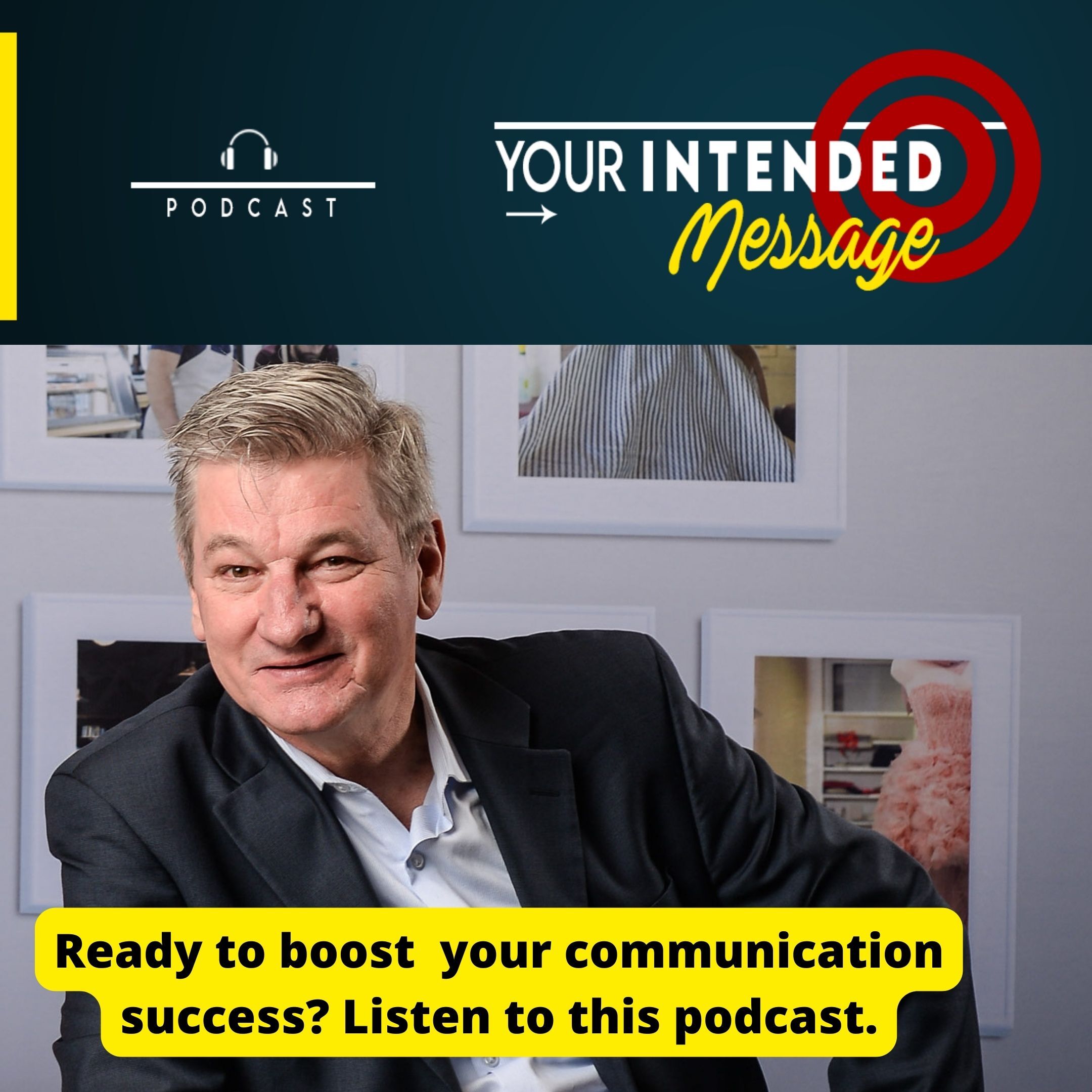
17.5K
Downloads
292
Episodes
The podcast about Effective Communication in Business
Better communication skills will advance your career and business. Are you ready to enhance your understanding and results from better communication? Listen and learn how to deliver Your Intended Message.
Are you willing to cross-examine communication from various perspectives? Would you like to deliver your intended message more effectively?
Listen to Your Intended Message to gain a powerful advantage in your ability to convey your message to your audience, team, clients or marketplace.
Learn from the mistakes and success of communication experts from around the world from different scenarios.
The better communicator has the competitive advantage.
Imagine what that means to you when you improve the success of your next conversation, presentation or message.
Your Host - George Torok
https://yourintendedmessage.com/
The podcast about Effective Communication in Business
Better communication skills will advance your career and business. Are you ready to enhance your understanding and results from better communication? Listen and learn how to deliver Your Intended Message.
Are you willing to cross-examine communication from various perspectives? Would you like to deliver your intended message more effectively?
Listen to Your Intended Message to gain a powerful advantage in your ability to convey your message to your audience, team, clients or marketplace.
Learn from the mistakes and success of communication experts from around the world from different scenarios.
The better communicator has the competitive advantage.
Imagine what that means to you when you improve the success of your next conversation, presentation or message.
Your Host - George Torok
Episodes
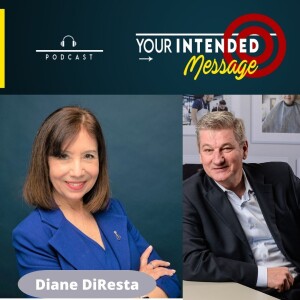
Thursday Nov 24, 2022
Boost your Presence with Gravitas: Diane DiResta
Thursday Nov 24, 2022
Thursday Nov 24, 2022
You don't need to be an executive to have presence
Check your gravitas, communication and appearance
Episode 122 (Diane is based in New York)
In this conversation we explore:
- The contributing components of presence
- What are the elements of gravitas, communication and appearance?
- The power of confidence and decisiveness
- How to align your communication
- How to establish your grounding position before you speak
- How to wield the power of the pause to your overwhelming advantage
- How to show up (and mistakes) for virtual meetings
About Diane DiResta
A speech pathologist, professional speaker, executive speech coach and past president of National Speakers Association NYC. She has spoken on 4 continents and is the author of Amazon category bestseller, Knockout Presentations.
Learn more about Diane at her website https://www.diresta.com/
-----
Excerpts from this conversation with Diane DiResta
Gravitas is the biggest component and it makes up 67% of the message. Or the definition communication is 28%. And your appearance is 5%. of executive presence.
-----
They're not grounded. So I give people actual practical tools that they can use. So here's one that I'll share with your listeners.
Whether you are on a screen or in a in person meeting, the first thing you want to do is establish a grounding position. Why? Because a lot of times in the beginning, we're fidgeting we have energy, we don't know what to do with it.
So here's what you can do, put both feet flat on the floor, lean in at a 15 degree angle with both hands on the table. I don't know if you can see this.
And what this does is it creates a presence and a grounding. So even if your heart is pounding out of your chest, we don't see it, you look confident.
So then the audience responds to you as if you are confident and then you start to feel more confident. You start to feel their respect and attention. So it starts with little things.
But what I've discovered is it's the little things that make the greatest impact. So nobody listening today has to do a big total makeover, but little tweaks along the way will get you to where you want to go.
-----
So when you talk about appearance, looking polished, and you're being authentic part of that your background when you're on screen.
So how are you showing up, and I've had people with beds in the background, not good.
So you can have a branding background, a background, like what I have, or you can use your home as long as it's professional looking, or an office. But all of these little things add up to an impression, a brand and executive presence.
-----
22:58
So energy is good. Enthusiasm is good, absolutely. But you can still be really enthusiastic, and come to a pause. So it's like a stop sign. Don't go past the stop sign, come to a complete stop, and then move. Let people have time to process.
-----
Read the rest of this entry »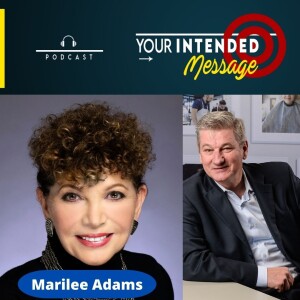
Thursday Nov 17, 2022
Shift your mindset from judger to learner: Marilee Adams
Thursday Nov 17, 2022
Thursday Nov 17, 2022
Are you asking questions to build or to tear down?
What is the difference between a learner and a judger mindset?
Episode 121 ( Marilee is based in New Jersey)
In this conversation we explore:
- The polar opposites of learner versus judger mindsets
- How to recognize your current mindset
- How to shift your mindset with the choice map
- How to be a stronger leader by asking stronger questions
- How to ask better questions of yourself
- Why decisions can be more productive when you are in learner mode
About Marilee Adams
Written 4 books, in August released two new books: (1) 4th edition of Change Your Questions, Change Your Life: 12 Powerful Tools for Leadership, Coaching, and Results—a business and leadership fable. (2) Change Your Questions Change Your Life Workbook: Master Your Mindset with Question Thinking. Note that the fable book has sold over 400,000 copies in 22 languages, mostly by word of mouth.
Marilee is the Founder and CEO of the Inquiry Institute, a consulting, coaching and educational organization that works internationally with organizations and government agencies large and small.
Marilee is a Senior Brown Belt in Karate, though that was 20 years ago; these days it’s mostly yoga for her!
-----
Download your free copy of the Choice Map here and start making more productive choices about your mindset
Excerpts from this conversation with Marilee Adams
I think the most powerful leaders are the ones who can ask the most powerful questions and who encourage people around them to do the same thing.
-----
04:59
And you you raise the the learner mindset versus the judging mindset. And that's something that you talk in your book about. Please tell us, what's the difference? What's the distinction? And why is it important?
05:13
Okay, I'm gonna describe each and I'm also going to show you a model that makes it easier to do that.
So first of all, let's assume that all of us, every human being has two mindsets. One I call judger. And the other I call learner, it's important to remember we all have both, both are normal.
And we will always have them, because we are not only neurologically hardwired for them, but we're also socially ingrained in them. So when I talk about being in judger, mindset, that means that I'm being more close minded more, putting myself or others down, being more judgmental, because judging means judgement fall.
And it can lead to a lot of self doubt, and also interacting with other people in ways that are not respectful and may actually be dismissive. So, but that's part of all of us.
And even if we don't like that part, that doesn't mean it's not there. And it's really useful to say, oh, yeah, that's me to accept all the parts of me. And if we can speak that we would be speaking from learner mindset, which we all have.
And when we're in learner mindset, we're more open minded, more accepting, more able to look from other people's point of view, and be dedicated to what can I create and learn in this situation with this person? So we all have both mindsets all the time.
What makes the powerful is that when we can observe the mindset we're in, and then ask ourselves, will this mindset let's say, it's judger? Well, this mindset helped me get to where I want to go in this situation. Most of the time, the answer's no.
But unless we can observe our mindsets, we might not even notice that. So it's important to note that I'm just going to, I'm going to show this and I'm going to make a comment about it to your listeners and your viewers. So this right, here it is, I get this confused. But this is called the choice map.
And we all have both mindsets, the judger mindset, and the learner mindset. And at any moment, we're in one or the other. And if we're in if we notice, we're in judger, we can start to use the switching lane. So it becomes a very practical how to.
So I know that this podcast is mostly auditory, which means people are not seeing it. But I do want to say that if you're interested in the choice map, go to my website, which is www inquiry institute.com.
So you can go to my website, you can get the choice map for free. So there's a protocol for how to do it, you take a short quiz, which is also gives you some useful information.
But then you can have the choice map and use it. And it's the core of not only change your questions, change your life, but all the other books that I've written and the work that I do that George, you mentioned a bit in the beginning. So does that answer your question?
-----
25:25
Do you discourage people from being the judge?
25:33
I would change that question a little bit. So, when they learn about the model of learner judger, and they start to see what the costs have been in their lives, and in particular situations of being in judger, rather than learner, then I don't need to convince them of anything, they start to go, oh, this problem occurred because I was in judger.
And I was just obstinate, maybe there's a different way to go about it. And truthfully, judger is, is human beings, it's always our default position. It's where we go. It's when we go reactive, it's it's fear based.
And it's very useful to accept that part of us. Because it is part of us, and then to see what there is to learn from it. It's also important, George not to go judge her on other people when they are in judgement.
Because then you end up with, like judges squared. Moving to a position where you can actually listen to each other, relate to each other, and maybe come up with some shared solutions together.
-----
Read the rest of this entry »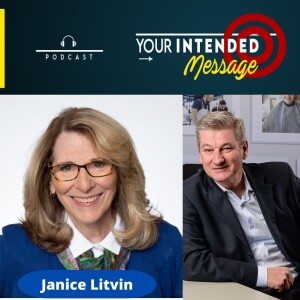
Thursday Nov 10, 2022
Be Aware of Burnout and Prevent It: Janice Litvin
Thursday Nov 10, 2022
Thursday Nov 10, 2022
Burnout is a Real Threat and You Can Prevent It
Mental health doesn't show up like a broken bone, yet it's present
Episode 120 (Janice is based in San Francisco)
In this conversation we explore:
- The challenges of identifying and mitgating burnout
- The difference between stress and burnout - and the connection
- That burnout is not an on-off switch but a downward spiral
- Simple course corrections - outdoors, sunlight and social interaction
- Our health includes mental, physical and emotional
- How burnout might be temporary
- How to have supportive conversations with your team
About Janice Litvin
Author of Banish Burnout Toolkit. (Available at Amazon or her website: JaniceLitvin.com/Book (can download a free first chapter)
Keynote speaker and workshop leader who helps leaders and their teams prevent burnout so they can come to work healthy and happy and be productive.
She also helps employees change their reactions to stress from the inside out. And she makes it memorable and fun.
Learn more at www.JaniceLitvin.com
-----
Excerpts from this conversation with Janice Litvin
01:21
Well, I use the World Health Organization's definition of burnout, which is chronic workplace stress that has not been successfully managed. Actually, they call the syndrome caused by chronic workplace stress that has not been successfully managed.
Now, a lot of people confuse the term stress with burnout. A lot of people say Oh, I'm so burned out. True burnout is complete mental, physical and emotional exhaustion to the point where you really have to take an extended leave.
Really, when people say, Oh, I'm so burned out, I think what they really mean is, I'm very stressed out. And I might be approaching burnout. And that's important to note as well.
02:11
And how can one make a determination or distinction? I'm feeling lousy right now? How do I know if I'm stressed, or if I'm burned out?
02:23
It all starts with the brain. When someone says I'm feeling lousy, that's a very broad statement that could mean physical, that can be emotional, can be mental.
And so it all starts with the thoughts. If you're waking up in the morning, and the first thought on your mind is something you have on your to-do list, you might be a little stressed.
And you might want to start thinking about spending a few moments throughout the day, not focused on work, whether that means taking a five minute break outside in the sun, which releases a lot of happiness, chemicals, or calling a friend.
And having a nice chat with a friend just checking in say, How's your day going? You know, I have all this work to do. I'm feeling nervous, and the friend can say, well, and that reminds you of things you already know, take it one step at a time.
Let our emotions run our thoughts, do the most important thing first, all the things we already know sometimes our thoughts, a lot of our brain with fear. And we just need to come back down to earth.
-----
13:54
Well, I want to say this. When someone is struggling, a lot of people are afraid of being labelled mentally ill. So they're not going to go to their boss and say I'm feeling mentally ill today.
They're not gonna go to their bosses, I'm struggling because they don't want to be labelled as that person can't do the job. Everybody wants to come across as being adept at their work and successful at their work. And yet, it's important to it really goes back to what I said earlier, which is people knowing each other and having a good team cohesion.
That might mean a team off-site once a month where you go do a charity project like a cleanup day, or, or go feed the hungry or go read to some children something or go on a Heart Walk or whatever it is or left the team, vote on a charity and they want to raise, do their own little fun. charity drive for who walks the most number of minutes or the most number of steps or whatever you want to do.
Does everybody chip in, so much money for however many steps they took, and donate that money to a cause that the team votes on whether it's a heart association or, or a school or whatever, and build, begin to take these baby steps toward building a really strong unit team.
-----
Read the rest of this entry »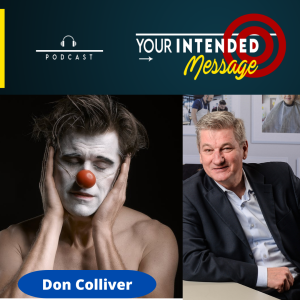
Thursday Nov 03, 2022
Presentation Lessons from Clown School: Don Colliver
Thursday Nov 03, 2022
Thursday Nov 03, 2022
Learn from Clown School, Blue Man Group and Improv, oh my!
How to use clown presence in your presentation
Episode 119 (Don is based in San Francisco)
In this conversation with Don Colliver, we explore:
- How clown training helps you leverage your flaws for human connection
- The importance of getting well prepared for your presentation
- How to shine through an embarrassing moment
- The ATM method to handle distractions and interruptions
- How to use the clown techniques of complicity and wink
- Why you need to become more aware of your emotional and state
- Why it's okay to reveal your kryptonite
- A crazy and effective way to rehearse your presentation
About Don Colliver
Don Colliver teaches popular public speaking courses internally at Google and around the world; leads improv, clown, and sketch comedy classes for the Berkeley Rep School of Theatre; and speaks professionally for Fortune 500 companies including Adobe, Cisco, and Medtronic.
Don has performed with the Blue Man Group, toured internationally as a theatrical Clown for contemporary circus Spiegelworld, and is listed in the Cirque du Soleil performer database.
Try this exercise to gauge the level of engagement with your audience.
Get your free copy of the exercise here. https://www.doncolliver.com/engage
-----
Excerpts from this conversation with Don Colliver
That is fascinating, Don, because what I'm hearing is that we want you to be good, we want you to be prepared, we want you to show up and ready to present and we want you to be the best that you can.
And if we see that you put in that effort, then we forgive a flaw or mistake. However, we will not forgive when you are not prepared.
07:38
A well put and I will take it even further. Forgive makes it sound like you're like I'm going to ignore that. I found that a small bobble actually gets the audience more on your side, if you're properly prepared, it makes them and that's what the clown that's what I mean by the clown element.
A basic structure of a clown Act is the clown comes out, ready to deliver something to the audience very excited, full of hope. Of course something goes wrong. The clown shares the vulnerability; the clown is vulnerable to the audience like that did not go as I planned.
No problem, I'm going to keep trying. And the audience is like okay, and then the clown of course, has another mistake, another failure even more extravagant.
And this continues on this pattern continues on the audience gets more and more on the side of the clown. Until usually in a clown bit the clown fails into some sublime unintended beauty.
This is not presentation this is this is where it diverts from what we're talking about. I'm just saying, if you are prepared enough, if you are properly prepared, a little bit of humanity will actually get the audience on your side.
-----
This is what I do before all of my presentations, I rehearse five to seven times, front to back without stopping.
But two of those times I do a very specific method. One time, I will go through my presentation, and I'll do extremely big body movements. Like crazy, I'll close the door, no one can see me I'll pull the shades down. So it's, it's private.
And, and I'll like wave my hands around, I'll jump on the couch, I'll crawl on the ground. Depending upon what I'm talking about. Just as much as I can, I'll use my entire body.
Of course, you never do this in the real presentation. But what it's going to leave a residual amount of appropriate movement, because you'll end up finding that you are acting crazy during the most important and emphatic parts of your presentation, it will just kind of sort out. You don't have to script it, it'll just happen.
The second one is do the same thing. But with vocal variety. Again, close the door, pull the shades down, make sure nobody's watching.
But really talk up and down and whisper and light and yell and really hit your points hard. And again, you won't speak like that during the presentation. But the residual will be your voice.
We'll have a lot more interesting vocal variety when you give that presentation that wasn't there before. A lot of folks, non native speakers struggle and ask how can I help my vocal variety? This is a tip I often throw their way of practice.
Let's have fun!
-----
Read the rest of this entry »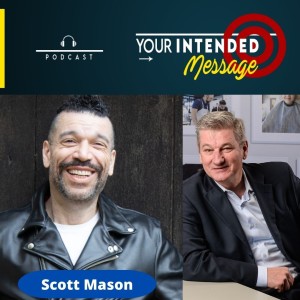
Thursday Oct 27, 2022
How does Charisma relate to Greek Mythology: Scott Mason
Thursday Oct 27, 2022
Thursday Oct 27, 2022
How can you build your charisma?
How does Greek mythology offer constructive leadership analogies?
Episode 118 (Scott is based in New York City)
In this conversation with Scott Mason, we explore:
- Charisma as a leadership quality
- The difference between entertainment and charisma
- Why powerful charisma both attracts and repels
- Why we need heroes that are flawed
- How to recognize charisma
- The importance of enabling the connection between your head and heart
- The rich litanies of Greek mythology
- Why Greek myths are a safe source of leadership lessons
About Scott Mason
Scott is a graduate of Columbia Law School and worked as legal counsel & a senior executive with government and nonprofit organizations for a quarter of a century.
Scott's insights on Greek mythology and business success have appeared in book compilations and online magazines and blogs; he additionally was the founding host of the Greater New York City area's official podcast for Toastmasters International, the world's largest public speaking organization.
Scott encourages everyone he knows to find a personal mythological avatar whose characteristics inspire them and keep them reaching high; his is Helios, the god of the sun, and has been ever since he was a little boy.
Arrange for your complimentary Charisma Assessment with Scott. Select a meeting time from his calendar.
https://calendly.com/scottmasonllc/ignite-your-charisma
----
Excerpts from this conversation with Scott Mason
06:26
Actually, I'm gonna bust you out a little bit, George, before we started taping you and I had a conversation about some apprentices that you're bringing on, and they were from Africa, and you wanted to work with them to help them help you.
I find it interesting in light of that conversation that you mentioned Perseus because Perseus from a symbolic perspective, and I actually wrote a series of essays about this for LinkedIn and Instagram represents also someone who understands the need to ask for help.
When it comes to achieving their goals. He literally saw the thought originally, he made the promise to kill Medusa basically as a boast.
But then the king that he made this boast in front of held him to it, he realised pretty quickly, I can't do this alone. This is more than any one person can handle.
And so he sought the help of the gods Athena, and Hermes, who literally walked him through an entire process along with some other folks along on the way to find Medusa. And then to destroy her.
On the way back, he stopped in Ethiopia to help some other people out. That was a woman who was being chained to a rock to be eaten by a monster as a as a sacrifice. He used Medusa his head, or maybe actually use a sword to kill that monster.
But in any event, he's left with this woman, Andromeda, who was an Ethiopian Princess, flew back to Greece, and they found it actually the greatest ancient Greek civilization of Mycenae.
And so I think that in terms of what you just said to me, about what you're doing in your own professional life right now, as a growing business person, where you want to go, and the possible outcomes of what your work with other people could lead to Perseus as perhaps an even greater and more profound metaphor than you even realised.
-----
Anyone can be charismatic so long as they take the four foundational steps and apply them into their lives to become charismatic, and it manifests itself very differently depending on who you are and what age and stage and and other characteristics you have in your mind.
-----
22:19
Your intended message could not be a more appropriate set of words, for the answer to that question.
When I decided to land upon this framework as the tool for passing on my message, I knew that there would be a lot of people that responded to it exactly, as you just described. And in fact, one of the things that I viewed initially, as a sign that this ultimately would succeed, was the amount of negativity that I received, unsolicited online.
I had people, by the way, who didn't seem to understand that I realised that Greek myths, right, like Zeus doesn't really exist. So I had people that were concerned about my immortal soul, or people who, you know, reminded me that I wasn't talking about the Bible, that sort of stuff.
And I also, though, had people including some in my immediate circle, who felt the need to send me text messages, or DM saying that what I was doing sucked.
Actually, George, that's charisma. Because I tell you, how many times when you're scrolling through social media, do you feel the need to stop and tell someone that you hate what they're doing? Usually, most people just scroll on, it said to me, it had an impact.
My message is not intended to go to everyone. If you don't like Greek myths, well, I can get you to like them. But if you don't like allegory, if you don't like something that's out of the box, and creative, and there's nothing wrong with folks that aren't that way, I don't judge them. This ain't for you.
The clients I have, make no mistake, they are committed. I have a client who began my program, we start talking about ethics from the beginning, because ethics do relate to charisma and less direct way.
He started reading Aristotelian ethics. This on his free time because of that, that's commitment.
I have other clients who when we do the actual mission statement that we sent her their charismatic exercises around, found an obscure Greek goddess that really spoke to her and that helped her frame her message and tighten and understand exactly who and what she needs to be.
This program is not for those who are just interested in what I call pep rally motivation, or you go girl sort of encouragement of what you need.
This is for those who are seriously seeking transformation as as cerebral. I'll be fun as the Greek myths are That's the depth that I seek for my clients to go to. The deeper you dig George, the more you find
-----
Read the rest of this entry »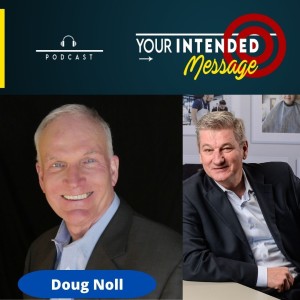
Thursday Oct 20, 2022
How to Calm an Angry Person in 90 Seconds: Doug Noll
Thursday Oct 20, 2022
Thursday Oct 20, 2022
Imagine the results when you can calm an angry person in 90 seconds - or less
Anger is a normal emotion and you can manage those angry people in your life
Episode 117 (Doug is based in California)
In this conversation with Doug Noll, we explore:
- That angry is simply one part of our emotional personality
- How to quickly sooth the angry soul
- Anger is an indication of a boundary violation
- What is emotional invalidation and how does it harm
- Mistakes to avoid with facing angry people
- Why anger is not necessarily bad
- How to manage your own anger and recognize the triggers
- Why ranting is not a helpful solution
About Doug Noll
Doug Noll is a lawyer-turned-peacemaker. In addition to his law degree, he has a Masters Degree in Peacemaking and Conflict Studies. In 2000, he left a successful law practice as a civil trial lawyer to help people resolve conflicts without litigation or conflict.
Doug was born nearly blind, partially deaf, and with two clubbed feet. His disabilities were challenging to overcome….and he did
He’s a second-degree black belt and tai chi master, a certified ski instructor, an airplane and helicopter pilot, a white-water river rafter, and a jazz violinist.
Doug teaches people how to de-escalate angry people in 90 seconds or less. His fourth book, an Amazon bestseller, is called De-Escalate: How to Calm an Angry Person in 90 Seconds or Less. Doug has online video courses and provides workshops and coaching to individuals and organizations desiring to increase their emotional competency.
As a listener of Your Intended Message you are entitled to receive a free book, How to Listen Others into Existence.
Take advantage of this offer here www.DougNoll.co/intended-message
-----
Excerpts from this conversation with Doug Noll:
03:04
Well, it's very interesting. There are at least 12 Different kinds of anger. And we don't have time to go into all the different kinds of anger there are, but there are at least 12 Different kinds of anger.
And at its root, of course, Anger is an emotion. And there are many levels and intensities of anger.
So you can be frustrated, which is an anger, emotion, you can be annoyed, you can be enraged, you can be irritated, you can be you can have hatred, so many, many different levels.
The key to all of these emotions are that when we get triggered into an angry emotion, the emotional centres of our brain take over. And they shut down the thinking part of our brain.
And we've all had this experience when we've seen it, you get angry, you can't think what some really interesting brain scanning studies show is that when the listener labels the anger to the angry person, the speaker, the anchor goes away in about 90 seconds.
And all I would say is something like this, Hey, George, you are really pissed off, you're angry, you're frustrated, you feel completely disrespected and ignored. You don't feel appreciated.
You feel a little bit of anxiety and worry about all of this. And you're sad because you feel betrayed. And the whole thing is just really frustrating to you. If you were really angry by me saying those words in that way to you, your brain would literally calm itself down.
What's effectively happening is that because your prefrontal cortex is offline when you're angry, when I tell you what you're feeling, it allows your prefrontal cortex to grab a hold and figure things out and all of a sudden calm itself down. And it's how every human brain is hardwired. And it happens in less 90 seconds. It's how it works,
05:04
Doug, if if we did nothing else in this conversation today that that phrase that you just did, you just delivered there is enough to provide tremendous value. Because what I'm noticing is one when you said that you were not responding, anger to anger, which is the typical response, well, you're angry, I'll be even angrier.
Yes, I can be a bigger jerk than you no problem. That's the typical response. And then we wonder why he was so unproductive. And we both go away feeling frustrated and unsatisfied. But when you said that, and even though I mimicked anger before, I wasn't angry, but I could imagine if you were saying that to me, and I was angry, it's like, oh, you get me? You understand me?
05:50
Exactly. That's exactly right. And here's what's happening. angry people need to be listened to, they're angry because they're not being heard at a deep emotional level. And when you can fulfil that need by validating their emotional experience, when I call listening another person into existence, anger goes away instantly.
And it happens every single time without failure. And I have had 12 years of field experience teaching murderers and maximum security prisons, how to become peacemakers and mediators to stop prison violence.
And I've taught over 20,000 inmates these skills, and every single one of them has had success with it in many cases. We started in 2010, my colleague Wolkoff and I started in 2010, in the largest, most violent women's prison in the world. Valley State Prison for Women and Chowchilla, California.
Two years into the program, we trained 800 women out of a population of 3600. We got an unsolicited letter from the warden saying the prisoner quieted down because of prisoner peace. It works.
-----
Read the rest of this entry »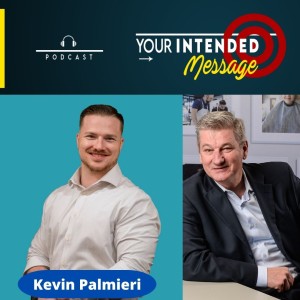
Thursday Oct 13, 2022
Self-improvement Starts with Self: Kevin Palmieri
Thursday Oct 13, 2022
Thursday Oct 13, 2022
Positive Self Talk leads to Positive Habits
Your action speaks louder than your words
Episode 116 (Kevin is based in New Hampshire)
In this conversation with Kevin Palmieri, we explore:
- The power of both positive and negative habits
- Recognize the value and purpose of pain
- Leading your team by enhancing their value
- The importance of seeking the next level of development
- When mistakes can be valuable
- Why it's powerful to do something for the first time
- How you can escape self-imposed traps & limits
About Kevin Palmieri
Kevin is the CFO, Founder & Co-Host of Next Level University, a Global Top 100 Self-Improvement podcast with more than 1000 episodes reaching over 600 thousand people in more than 125 countries.
After overcoming depression and suicidal ideation, Kevin became passionate about self-improvement and entrepreneurship. Through his podcasting and speaking, he made it his life's purpose to make a positive impact on as many people as possible.
Kevin believes in a heart-driven, no BS approach to holistic self-improvement while teaching people to get to the next level of their lives.
Are you ready to explore the next level of your life? Then take this course to challenge your thinking and actions. (This course is free.)
https://www.nextleveluniverse.com/next-level-5-to-thrive-registration/
-----
Excerpts from this conversation with Kevin Palmieri:
03:10
So next level suggests that we are a continuous work in progress.
03:18
Yes, yeah. 100%. When you build a house, you don't just build a house and then leave it.
You have to clean the house, you have to maintain the house, you have to keep up with the times, maybe you have to change your wiring, when the electrical codes change, there's always something going on.
So by definition, Nothing ever stays the same. If something is quote, unquote, in maintenance mode, it's probably getting worse. And I'm not saying that as a human intrinsically, you're getting worse.
But if you're not creating new skills, if you're not becoming a better communicator, if you're not honing your leadership skills, you're probably losing ground and you're losing momentum, and you're not going to get the opportunities and the impact that you want out of life. It's a never ending game.
-----
05:07
And Kevin, I, I think I heard a powerful insight there, you mentioned about when you improve, when you get better, you feel better, you feel good about yourself. And it perhaps to me that, that feeling good about yourself is those little accomplishments that you you make every day, every week, every year,
05:30
I grew up with very low self worth, George. And I always wondered why.
And I think a lot of the reason behind that was I wasn't willing to try new things. And I wasn't willing to prove to myself that I actually was more capable than I gave myself credit for.
And by doing that, I actually kept lowering my worth, lowering my worth, lowering my worth.
So when you do things that maybe you didn't believe, were possible, when you learn something that helps you understand yourself at a deeper level, I think you can start to value yourself internally at the appropriate level. And I think it takes self awareness, which is going to take learning, ultimately, yeah.
06:09
Hmm. And you, you said you lowered yourself, your self worth your self esteem.
And it sounds like at one point, you lowered it so much that you even thought, well, what's the point of living anymore? I'm not worth anything.
How did you escape from that? That prison?
06:31
I think that for me, I had found quote, unquote, success. So I was a six figure earner at 26. And I remember when I opened my final pay stub, I said,
Why aren't I happier than I am, this is exactly what I wanted. I have everything I could ever want, what's going on here?
So I think I got all this awareness at once about what true happiness quote unquote, and success was.
Now, luckily, I had a very supportive group of people around me.
So the day that I felt the worst, the day that I was having these suicidal thoughts, I texted somebody close to me. And I said, Hey, I'm having these thoughts. I'm having these feelings, I'm having these emotions. I don't know what's going on. I don't know what to do.
And I think two things happened. One, I was in enough pain to reach out to somebody to the person I reached out to gave me permission to make a different choice that day.
He said, Well, so much has changed for you, but your environment.
So they're saying, Of course you don't feel valued, you're hanging out in places where you're not valued.
And if you were hanging out where you should be hanging out, you would be valued, and you'd feel more valuable, and your self worth would be higher.
But if I reached out to somebody, George, and I said, Hey, I'm feeling a certain way, I don't know what to do. And they said, Well, Kevin, nobody likes their job. Everybody hates their job that's par for the course, then what are the odds, I would have felt safe enough, courageous enough and supported enough to actually leave?
So in a weird way, Alan is the person I reached out to, his intended message was you should really do what's going to make you the most happy and fulfilled.
And he gave me the permission to do that, which I know a lot of people wouldn't necessarily have in that situation.
-----
Read the rest of this entry »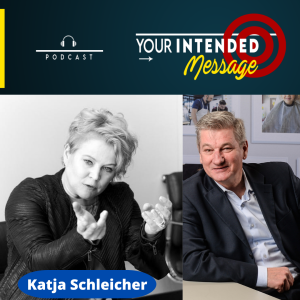
Thursday Oct 06, 2022
Cross Culture Communication: Katja Schleicher
Thursday Oct 06, 2022
Thursday Oct 06, 2022
How to boost your cross culture communication results
Your culture is simply your perspective of the world
Episode 115 (Katja is based in Den Hagg, Netherlands)
In this conversation with Katja Schleicher, we explore:
- What are the challenges of cross culture communication?
- How to establish a positive relationship
- How to recognize the traps that might blind you to your bias
- Why you need to be a tourist more often
- How food can bridge the cultural divide
- How to build your multicultural team
- When you should not use Oregano
About Katja Schleicher
KATJA SCHLEICHER knew already at an early stage that talking is gold and silence the beginning of all troubles…
Known for her provocative style and her sense of humor on stage she looks deeper in our communication troubles – and is not afraid to talk about them.
After her studies (German & English language & Literature. Linguistics & psychology) she pursued an international career in PR, Advertising and Corporate Communications for Media & HiTech Companies.
For more than a decade she now passionately enables effective & empathic communication with all the clients she works with. From big banking, conservative pharma to ambitious startups. From 1:1 dialogues to the big stages.
With three languages, two passports and an European heart, Katja travels across borders constantly to bring people and ideas closer through communication. She speaks at conferences about communicative misunderstandings and how to initiate change through communication.
Learn more about Katja and her programs at the website
-----
Excerpts from this conversation with Katja Schleicher:
02:27
You know, you correctly said that I really love to be around people that come from different backgrounds and mindsets, because and that brings me to intercultural communication in a straight line.
This is where it's getting interesting. Where everything is the same or a similar a over time, it's getting less interesting. We are getting sloppy. We think, oh, yeah, he or she, they will understand me anyway, even if I do not pronounce clearly, even if I'm, you know, I'm in sloppiness, right?
And that was one of the reasons why I liked the title of your podcast, Your Intended Message so much, often the intention doesn't get through, it simply gets lost in translation.
And you see that not just in business, you see that in relationships. A lot. That after a certain time, it's like Yeah, yeah, you know, oh, yeah, George. Yeah, yeah, yeah, of course. I love George. Yeah. Huh. And the intention behind it kind of gets lost.
So in intercultural context, this is one of the biggest challenges and that is one of the most beautiful things that you it's never getting boring, because there's always an impulse.
There's always a notch there was always something that happens, right and the end, especially in intercultural contexts, we try we as human beings, it's in us, we try in particular to get our intended message across and we take effort we, we check back.
If you ever had a relationship with someone from a different cultural or language background, you know that you make double and triple Sure, okay. Did sweetheart get what I meant? Or did he just hear my words and that to me is the way we should face all the challenges in intercultural communication.
So, accept there is someone from a different intercultural background and again, intercultural gene does not mean just countries, it could be in the same company that you speak to someone from the purchasing department and if you're from the marketing department, I can assure you there are quite some cultural differences and communication, right?
So, the more foreign the more strange, the better, because that keeps us sharp, it keeps us alert.
Of course, this is tiresome. Yes, it is much more easy if you have somebody mumbling and you know what you mean? Yep. But on the other hand, it gets boring, so fast. So, this is so the challenge to bring it back to this one send the challenge is in intercultural communication.
That is, it really requires everything from you. But it rewards you with everything is now you will learn so many new things in my perspective.
-----
21:39
How do you feel about a leader in the workforce? Learning more about the other people's culture, language or beliefs? How can they do that without appearing to intrude?
22:01
Now there is this wonderful balance between interrogation or intruding and curiosity.
And what I invite my clients to do very often is to treat their teams as a destination and behave themselves as the best tourist they could be.
Because when we go somewhere, we are curious, right? We are usually more wired for question. When we started, you just asked me in German, "Wo ist der Bahnhof?"
Where is the station? Right? So as a tourist we are wired for questions, because we know that maybe our message or intended message is not getting through. So asking a question is very helpful here.
And if you're if you're in leadership position, and you have a team to lead, I recommend that highly be a tourist in your own team. Be curious, not intruding and interrogating.
But be curious. Like you see, you go on a sightseeing tour every day.
Oh, George, I've never I've never seen someone doing this or that in my entire life. How did that evolve? Right? It's like, if I will be your boss, George, I'd be on go on George sightseeing.
So I think that this is because then people get a chance to respond. Right? You could tell me no oh, you know, that evolved like this or that. And this is the reasons why I'm very picky with my words.
And all these all the things we already we already talked about. And that is when you when you build as if when you're when you're leading a team, or you build a reservoir that you can use when you when you have a tough time with your team.
So be curious.
-----
Read the rest of this entry »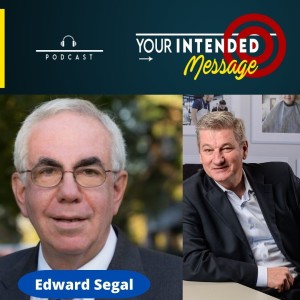
Thursday Sep 29, 2022
Crisis Communication: Edward Segal
Thursday Sep 29, 2022
Thursday Sep 29, 2022
How to communicate during a crisis
Crisis management and communication
Episode 114 (Edward is based in Washington, DC)
In this conversation with Edward Segal, we explore:
- How to be better prepared for your next crisis (hope isn't a plan)
- Silly phrases to avoid and what you should and can say
- Why it's never "off the record"
- What to include in your crisis management plan
- What to say when you still don't know what caused the problem
- How to deliver a clear message that is understood and believed
- How to prepare for the media, especially when facing serious accusations
About Edward Segal:
Bestselling author of the award-winning book, Crisis Ahead: 101 Ways to Prepare for and Bounce Back from Disasters, Scandals and Other Emergencies, published in 2020 by Nicholas Brealey
A leadership Strategy Senior Contributor for Forbes.com where he covers crisis-related news, topics and issues
Host of the weekly podcast, the Crisis Management Minute
Learn more about the book and working with Edward Segal here
You can get a copy of the ebook at 50% off.
Click this link and use the code CRISIS
https://nblibrary.papertrell.com/redeem
Get a free copy of the crisis management template by requesting it from Edward at this email address EdwardSegalCommunication@gmail.com
-----
Excerpts from this conversation with Edward Segal:
02:09
Well, mistake number one is that they often do not have a crisis management plan. And a crisis management plan can act as a roadmap guidebook to how to respond, manage and recover from a crisis.
But even if a company has a plan in place, the chances are pretty good that they have not looked at it, reviewed it or updated it in quite some time.
And even worse, they haven't even practiced the plan against various scenarios to make sure it will work when needed.
-----
06:18
And that template sounds like a handy tool because I can imagine a lot of people just thinking about a crisis plan, get overwhelmed, and don't know where to start or are reluctant to start. In one of the challenges must be which crisis do we pay? Do we prepare for it? Because there are so many?
06:38
Well, that's the purpose of the plan. A plan and crisis management plan helps you to prepare for every possible crisis, every possible contingency.
There are some things you can plan for and say, well, we might have a problem such as bad weather, whether it's flooding, snow, hurricanes, tornadoes, depending upon where in the country you live.
You should take steps immediately to prepare for those Mother Nature related crises.
Other crisis situations, such as allegations of sexual harassment, fraud, counterfeit, all those kinds of things, especially accounting, or book or bookkeeping related issues, there are ways to take steps to mitigate if not totally prevent those kinds of crisis.
I've identified more than 100 Different crisis triggers. And it's kind of like it's an extension of Murphy's Law. If anything can go wrong, it will.
Well, my law is if you it's not a matter of if you're going to have a crisis, it's when how bad it's going to be, how are you going to handle it, and how you're going to recover from it.
And that's what the book and the crisis management plan template is designed to help people address those issues.
-----
Read the rest of this entry »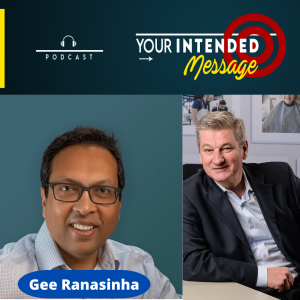
Thursday Sep 22, 2022
Marketing is Broken: Gee Ranasinha
Thursday Sep 22, 2022
Thursday Sep 22, 2022
The Marketing crisis for small business and startups
Beware of the trap of choosing efficiency over effectiveness
Episode 113 (Gee is based in Strasbourg, France)
In this conversation with Gee Ranasinha, we explore:
- Why marketing is broken and the resulting marketing crisis
- Appreciating the value of differentiation and danger of not
- How to recognize "the people who call themselves marketers"
- Why it starts and ends with how people feel
- Why you want to consider the amygdala in your marketing plans
- The real purpose of branding when connecting with your decisions
About Gee Ranasinha:
Founder and CEO of KEXINO, an award-winning start-up and small business marketing agency.
Gee's background is in B2B marketing, small business marketing, branding, differentiation, and customer behavior.
Gee's been in marketing since the days of dial-up modems. For seven years Gee was Worldwide Director of Marketing for a software company, working with clients such as IKEA, Marvel, Nestlé, Airbus, and Time Magazine. For the past 14 years he has been CEO of KEXINO, an award-winning marketing agency specializing in helping startups and small businesses around the world deploy next-generation marketing within - and across - their organizations.
A Fellow of the Chartered Institute Of Marketing, Gee is also Visiting Professor at European business school IEF, teaching final-year MBA students on Marketing and Behavioral Economics.
Connect with Gee and learn more at Kexino.com
-----
Excerpts from this conversation with Gee Ranasinha:
01:59
It's quite simple, really, it goes to my history, way back when, for seven years, I was worldwide director of marketing for a software company, fairly large software company in Europe serving blue chip clients such as timing can IKEA, Nestle, Airbus Marvel people like that.
And whenever I was invited, to have marketing agencies come in to pitch for our business, I was always amazed at how little notice they took towards any fiduciary responsibility for the marketing plans that they proposed.
And at the same time, this is back in 2007 or so the thing called the internet was beginning to affect our daily lives. I don't know George, maybe you've heard of it, this thing called the internet.
02:51
It was, it was the big brands who were the ones taking advantage of the potential of the internet because they had greater technical experience. And obviously, deeper pockets.
And small businesses and startups are getting left behind. And so I figured that there was an opportunity for a marketing agency resource, specifically aimed at helping small businesses and startups that could help them leverage the power of online engagement and the evolution of customer buying processes.
And so that's why in January 2008, I resigned my comfortable corporate position, with all its trappings and international travel and company cars and expense accounts, and all that sort of stuff. And we launched our marketing agency.
-----
12:51
So firstly, I think marketing is in crisis, because it is ideologically disliked, in the higher tiers of business. Okay. And secondly, I mean, I'll expand upon this in a minute. Secondly, I think marketing is in crisis, because much of the work conducted by people who call themselves marketers, notice I didn't call the marketers I said people who call themselves marketers is only a tiny bit of what marketing is actually about.
13:26
And what the people who call themselves marketers are actually doing is communications is promotion.
13:38
Which if we go back to the four P's of marketing is you know, only 25% of what marketing is.
And so, as a result of just focusing on comms and communications and messaging, marketing has been relegated to a sales support function. Right. And within so many organizations, the marketing function is seen as, producing brochures, updating the website, getting some tote bags made, getting some stress balls printed, and at the other end, marketing is being used as an automation tool to automate lead generation and advertising.
But it's delivering substandard and increasingly ineffectual results. So what do I mean that CEOs have a dislike to marketing?
14:36
I think they have an inherent distrust in marketing because it goes against the way they think, CEOs and CFOs, accountants, numbers-people, that they look at other areas of the business. And those areas are very pragmatic and they're very, they're based on rationality. They're based on sequential thought.
-----
Businesses are looking to create a, a data driven repeatable process, but one that's devoid of creativity, salience, or resonance, and then they wonder why their marketing doesn't work.
-----
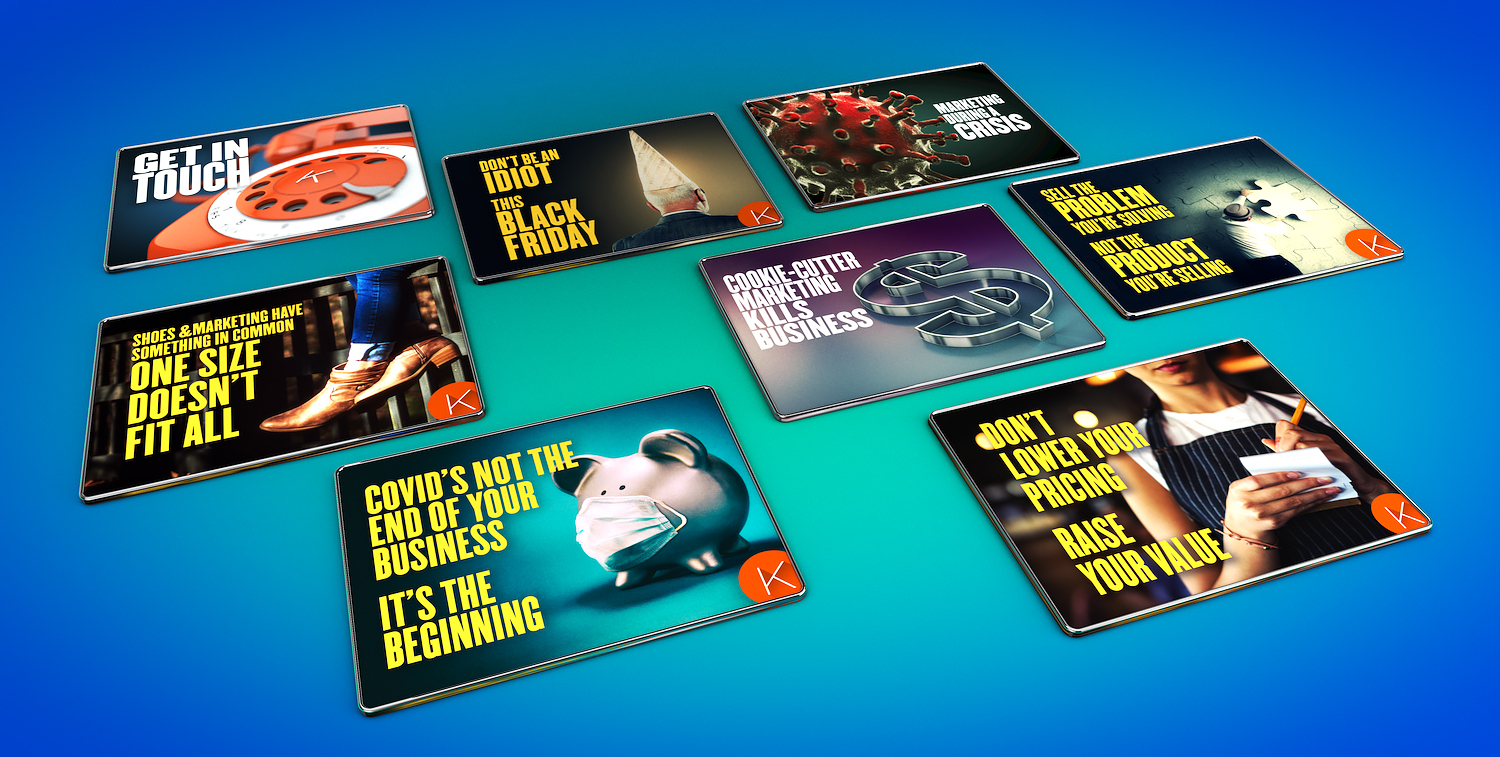
It needs to have in in my opinion, it needs to have somebody who understands a customer. There are far too many conversations that I have with business owners with people who call themselves marketers who haven't spoken to a customer in the past six weeks. Now to me that tantamount to a dereliction of duty,
-----
The book he mentioned, Thinking, Fast and Slow by Daniel Kahneman.
